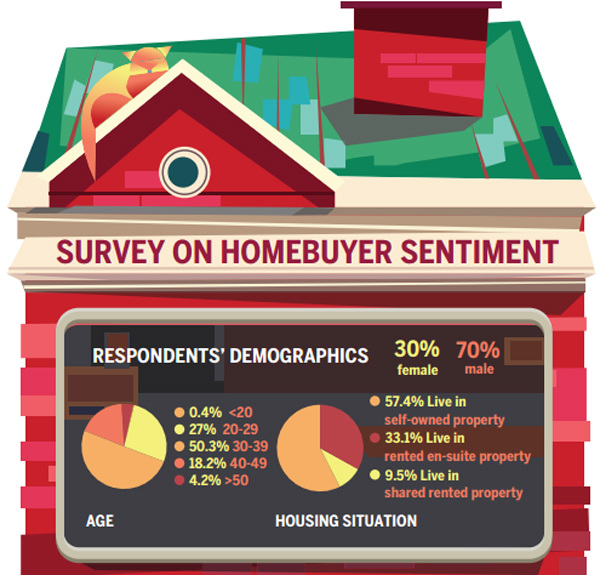Measures this year across China to rein in both speculative investments in the property sector and skyrocketing home prices appear to be "effective".
For instance, the average sale price in Shanghai's high-end segments posted only a 0.3 percent quarter-on-quarter growth in the first quarter of this year, while in the fourth quarter of 2016, growth was 1 percent.
In Beijing, tight supply of new residential properties and restrictions on purchases caused a nearly 32 percent quarter-on-quarter contraction in sales volumes of newly built residential properties, according to data of anjuke.com.
In the first quarter, Shanghai's tighter policy stance, together with limited new supply and seasonal effects, has contracted sales by 33 percent quarter-on-quarter in the mass market, and 28 percent in the high-end segment, according to JLL East China research.

Growth of average sales price of residential properties in the urban area of Shanghai has also slowed down to 60,100 yuan per square meter now from 59,300 yuan per sq m in January, according to anjuke.com.
The desired impact of restrictions has been seen even at the homebuyer level, not just among developers and realty agencies, analysts said.
For instance, Chen Tongjiang, 57, a homebuyer from Shanghai, may drop his plan to buy an apartment in Hainan province. For, the southeast island, known for its picturesque tourist attractions and year-long balmy weather, last week introduced new investment restrictions.
It banned non-locals such as Chen from buying newly built local properties as their second homes.


















































